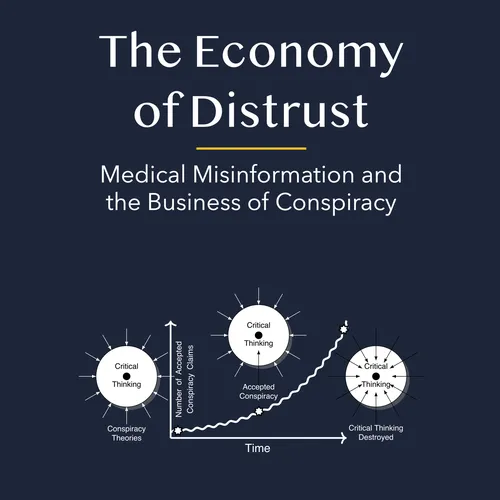Resistance to Public Health Initiatives
- Author
- Milan Toma
- Published
- Tue 19 Aug 2025
- Episode Link
- https://podcasters.spotify.com/pod/show/economy-distrust/episodes/Resistance-to-Public-Health-Initiatives-e370rtb
This episode examines the historical and psychological roots of resistance to public health initiatives, highlighting how contrarianism is often mistakenly perceived as critical thinking. They illustrate this through modern examples like COVID-19 vaccine hesitancy, showing how narcissistic tendencies and insufficient cognitive reflection can fuel conspiratorial beliefs, even among the educated. The sources then draw parallels to the 1721 Boston smallpox epidemic, where the introduction of variolation sparked intense public fear, misinformation, and violence against its proponents, demonstrating a recurring pattern of anxiety and aggression when medical innovation challenges established beliefs and trust erodes. Both historical and contemporary narratives emphasize that misinformation and distrust can tragically culminate in violence, underscoring the enduring challenge of communicating scientific advancements effectively and rebuilding public confidence.
